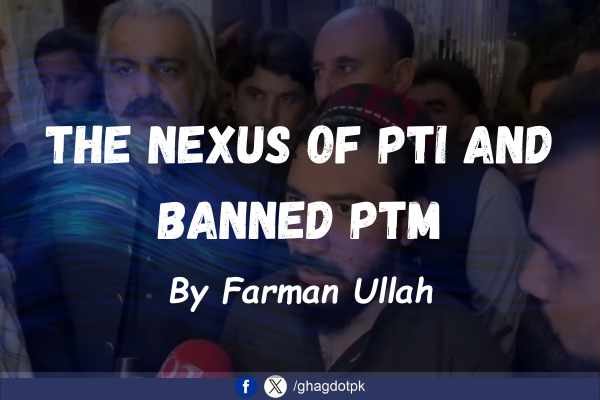By Farman Ullah
A significant gathering took place in Peshawar as top leaders from Khyber Pakhtunkhwa and the federal government convened to address pressing security concerns. Chief Minister Ali Amin Gandapur hosted the grand jirga, focusing on resolving peace-related issues ahead of the banned Pashtun Tahaffuz Movement’s (PTM) three-day conference.
Unity and Dialogue Emphasized
Attendees included prominent figures such as Federal Interior Minister Mohsin Naqvi, KP Governor Faisal Karim Kundi, and representatives from various parties. The jirga authorized Gandapur to lead efforts to resolve peace-related issues, stressing the need for unity and dialogue.
Gandapur emphasized that negotiations, not conflict or violence, are essential for solving problems. Governor Kundi highlighted the importance of peace, acknowledging existing political differences and urging stakeholders to prioritize KP’s safety and prosperity.
Background and Controversy
The meeting follows the federal government’s ban on the PTM. The interior ministry has issued a notification declaring the movement “unlawful” under Section 11B of the Anti-Terrorism Act of 1997, citing threats to national peace and security. The KP government imposed Section 144 in Khyber district for 30 days.
Despite this, PTM activists assembled in Jamrud, defying the federal government’s order.
A Unified Effort
The grand jirga demonstrates a unified effort to address KP’s growing security concerns. As Gandapur stated, “Protection of life and property of citizens is our first responsibility and priority.” The jirga’s outcome will be crucial in shaping the province’s future.
Key Attendees
Federal Interior Minister Mohsin Naqvi, KP Governor Faisal Karim Kundi, Awami National Party President Aimal Wali Khan, Qaumi Watan Party’s Sikandar Sherpao, Pakistan Muslim League – Nawaz representatives, and Pakistan Tehreek-e-Insaf Chairman Barrister Gohar.
Conditional Permission
The Khyber Pakhtunkhwa government with the consultation of the federal government granted conditional permission to the banned Pashtun Tahaffuz Movement to hold gatherings is a significant development. This decision aims to strike a balance between the movement’s right to assemble and the government’s responsibility to maintain law and order. To ensure this balance, the government has set a few conditions: Peaceful Assembly, requiring gatherings to remain non-violent; No Anti-State Rhetoric, prohibiting speeches or slogans promoting anti-state or separatist ideologies; Respect for Law Enforcement, mandating cooperation with law enforcement agencies; No Harm to Public Property, requiring gatherings not to damage public or private property; and Prior Notification, necessitating informing authorities about gathering details.
This decision may help ease tensions between banned PTM supporters and law enforcement agencies, encouraging dialogue and negotiations. The KP government reaffirms its commitment to maintaining peace and stability in the province while protecting the banned PTM’s rights, provided they adhere to conditions. Their leaders have cautiously welcomed the decision, emphasizing their commitment to peaceful assembly and respecting conditions.
However, challenges lie ahead, including effective implementation of conditions, building trust between banned PTM and the government, and mitigating external influences that may impact the fragile balance between the two parties. The conditional permission granted to the banned PTM reflects a nuanced approach, acknowledging the movement’s rights while ensuring public safety and security.






